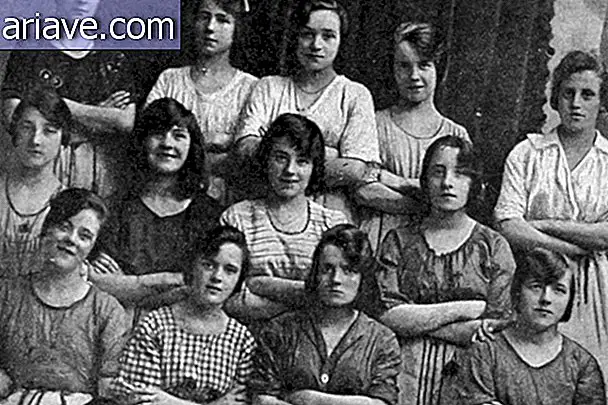Meet 4 of the most famous medieval knights in history
The Middle Ages have always exercised - and continue to exercise - a great fascination in the imagination of those in love with world history. If you are one of those crazy about this time, you should know that the period is also one of the favorite inspirations for epic movies, books, series and even games for being so rich in its trajectory.
A bit of history
The period in European history from the fifth to the fifteenth century was full of remarkable events, and the Middle Ages brought about major changes in the customs of mankind and led to revolutions that had a huge impact on the political and social structural form.

To get an idea, demographic growth has come a long way, and with that, trade has resurfaced more strongly, making Feudalism even stronger. In the midst of all these events, kingdoms and empires perpetuated wars for territories that could often last for years in frequent battles.
The Knights
And yes, for these conflicts, as well as for the role of warrior leader of the nobility, the knights marked history with great journeys of bravery in the Middle Ages. To be a medieval knight was not enough to want. In addition to having to master great military skill on the battlefield, many of the knights had already come from the “lineage” of royal royalty officers and had trained for it from a young age.

Being a knight was very serious, my people! In addition to all body fighting, sword training, and horse mastery, the knight had to follow a code of conduct and honor that went beyond behavior in battle to socialization as well. That is, if he vacillated outside of “work”, it could cause problems for him.
Then, having completed the training that spanned many years, the knight was awarded his title in a special ceremony, as you see in some films, where some nobleman rests the sword on the nominee's shoulders, arm, and neck.
Here at Mega Curioso you have already had the opportunity to meet 6 of the most celebrated knights of the Middle Ages - such as King Arthur, Richard the Lionheart and El Cid - and now we will show four more that have become very famous in history. Check it out below.
1 - Henry Percy the Fiery
Sir Henry Percy (1364-1403), known as “Hotspur” (fiery, cunning) due to his temperament, was one of the knights that marked the Middle Ages as a result of his strong performance in England and France. Like many of the knights of the time, Henry began his career early. So much so that he was appointed by King Edward III at the age of 13, along with future kings Richard II and Henry IV.

After stints in Ireland and Prussia as a teenager, Henry became even more specialized in knighting. And at age 21, he accompanied (already) King Richard II on his expedition to Scotland, where he proved his military skills, giving even more credibility to his "chiefs" of the nobility.
Its main characteristics were the quickness to anticipate the enemies and readiness in the attacks, when it earned the nickname mentioned above. Soon Henry was sent to France, where his reputation as a fiery warrior grew with each battle. He stayed for many years in French territories until returning to England in 1395.
It was after this that his life of glory began to crumble. Despite his privileged position in his service to King Richard and later serving his successor Henry IV, Henry and his father, who accompanied him on the expeditions, were now harassed by the king, who was unhappy in some respects. Then in 1403 Percy and his family rebelled against Henry IV, but they got worse and were killed by the royal forces at the Battle of Shrewsbury.
2 - Bertrand du Guesclin
Considered the greatest French knight of his day, Bertrand du Guesclin (1320-1380) was regarded as a true national hero and military leader during the early part of the Hundred Years War.

In addition to his field fighting skills, Bertrand was extremely intelligent and studied a lot about guerrilla strategies and began to use them very successfully in some conflicts. One was the battle of Rennes (in 1364) where the tactic was to avoid established battles with the English until the French had sufficient advantage to defeat them. And it worked!
Bertrand's performance caught the attention of the king of France, Charles V, who sent the knight for another battle against Charles II of Navarre, in which he was also victorious. Bertrand's career then continued with other wars in French territory and Spain, where he was captured by the English, but was soon rescued by King Charles V.
Bertrand died during a military expedition in Languedoc in 1380 and, due to his royal service, he was buried at Saint-Denis in the tomb of the kings of France. Even your heart is kept in the basilica of Saint-Sauveur in Dinan.
3 - John Hawkwood
Considered a true myth of the Hundred Years War, John Hawkwood (1323–1394) was one of the most famous and successful knights of the Middle Ages. Many even doubted his existence and even how he became a knight, but the fact is that his role as a soldier was witnessed with admiration at the time and widely commented.

Hawkwood participated in the Battle of Crécy in 1346 and the Battle of Poitiers in 1356. It was shortly after these events that this knight joined the White Company, a famous army of mercenaries, with whom he headed to Italy in 1361 and became leader of these. soldiers. In Italy, Hawkwood led fights in the cities of Milan and also in Florence, where he ended his career. In 1394 Hawkwood dies in Florence, being buried in Duomo with honors in a ceremony.
4 - William Marshal, 1st Earl of Pembroke
Considered one of the most important and respected knights of his time, William Marshal (1147-1219) served no less than five kings of England! They were: Henry II, his sons the "Young King" Henry, Richard I (Lionheart), John and Henry III (John's son).

Known for his bravery in battle, William, Earl of Pembroke, began early in service to King Henry II, who gave him the post of being a guardian of his eldest son in 1170. A few years later, the king's sons rebelled against he but William remained faithful to Henry II and helped him to end the conflict.
When another great knight of the time, Richard the Lionheart, son of Henry II, became king, he kept William at his side, which was of great value. All because, on one occasion when Ricardo was absent, William prevented Richard's own brother, John, from taking the throne.
However, after Richard's death in 1199, William assisted John in his succession and became one of his closest advisers. William Marshal died on May 14, 1219 in Caversham, being buried at Temple Church in London, where his tomb can still be seen today.
* This text was written by Claudia Borges via N-Experts.
***
Did you know that Curious Mega is also on Instagram? Click here to follow us and stay on top of exclusive curiosities!











